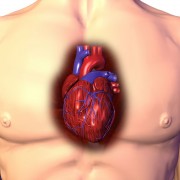Speedier recovery for heart valve repairs
Advances in minimally invasive surgery, also known as keyhole surgery, are transforming recovery times for patients with paravalvular leakages, explains cardiologist Dr Paul Chiam

Heart valve replacement surgery is the mainstay treatment option for patients with heart valve disease. Performed through an open heart approach, the surgeon removes the damaged or diseased heart valve and replaces it with a prosthetic valve, restoring normal blood flow and function in the heart muscle.
In some patients, however, a gap can appear between the implanted prosthetic heart valve and the patient’s own heart tissue due to a breakdown in the sutures that secure the valve in place. This deterioration can lead to a leakage of blood through the side of the implant, and if left untreated, may result in more serious complications like hemolysis (breakdown of red blood cells) or heart failure. Known as a paravalvular leak, this complication occurs in around one to 10 percent of valve replacement patients and can develop in both the mitral valve or in the aortic valve.
Previous treatment options were limited, often involving a repeat (and higher risk) open heart surgery to repair the paravalvular leak or to replace the prothestic heart valve entirely. As interventional techniques have progressed in recent years, a more advanced procedure, known as percutaneous paravalvular leak repair, has become more common, offering patients a minimally invasive approach for treating a leaking heart valve.
Percutaneous Paravalvular Leak Repair
Percutaneous paravalvular leak repair surgery is performed via a small puncture in the groin, on a beating heart, without the need to re-open the chest to access the heart valves. A small catheter is fed through the femoral artery or femoral vein in the leg to the heart where, with the help of a guidewire and advanced imaging, a ‘plug like device’ is deployed into the paravalvular leak to close the gap. The procedure requires the skill of a trained interventional cardiologist due to its technical complexity.

Different vascular ‘plugs’ that can be used in percutaneous paravalvular leak repair surgery to block a leak at the side of an implanted heart valve.
In a small number of patients, the leak cannot be closed due to problems with the guidewire’s inability to cross the heart valve defect, and in these cases a more invasive approach is needed.
Enhanced patient outcomes
Compared to open heart surgery, a percutaneous paravalvular leak repair is performed in just a few hours and doesn’t require re-opening of the chest cavity. Recovery time is significantly shorter for patients undergoing a minimally invasive procedure such as this and many can be discharged the day after the procedure.

(Left) Paravalvular leakage: red circle shows the site of the leak between the implanted heart valve and the patient’s heart tissue.
(Right) Paravalvular leakage closure: red arrows show the implanted vascular ‘plugs’ after surgery has been performed.
In the recent case of a 66-year-old Indonesian patient who presented with breathlessness that had progressed in severity to the point where he could barely walk, an echocardiogram showed severe valve leakage in the mitral position due to a paravalvular leak. Previous mitral valve replacement surgery had been conducted in 2006 where a prosthetic valve was implanted.
Conventional open heart surgery to repair the leakage would have placed the patient at a higher risk for complications due to the need for a repeat open chest surgery, Dr Chiam explains. Instead he underwent successful percutaneous paravalvular leak closure where the procedure was done via minimally invasive access from the groin.
“The patient was discharged from the hospital after a one-night stay and can now walk for much longer distances – he even walked into the clinic unaided,” remarks Dr Chiam. “A repeat echocardiogram showed that the leakage has been significantly reduced.”
With an increasing number of patients with surgical valve replacements in the Asian region, especially in Southeast Asia, the number of patients with valve leakage problems is expected to rise. As such, patients who need this surgery can benefit from one of the most advanced cardiac procedures in Mount Elizabeth Hospital.
 Dr Paul Chiam is a consultant cardiologist, sub-specialising in interventional cardiology at Mount Elizabeth Hospital and is an Adjunct Associate Professor at the National University of Singapore, Yong Loo Lin School of Medicine. He also runs his own private practice, The Heart and Vascular Centre at Mount Elizabeth Medical Centre, where he offers a wide range of cardiac tests and treatments.
Dr Paul Chiam is a consultant cardiologist, sub-specialising in interventional cardiology at Mount Elizabeth Hospital and is an Adjunct Associate Professor at the National University of Singapore, Yong Loo Lin School of Medicine. He also runs his own private practice, The Heart and Vascular Centre at Mount Elizabeth Medical Centre, where he offers a wide range of cardiac tests and treatments.
The Heart and Vascular Centre - Mount Elizabeth Hospital
3 Mount Elizabeth #08-06
Mount Elizabeth Medical Centre
Singapore 228510
Tel: +65 6735 3022
www.mountelizabeth.com.sg
Related Articles
Why laughter may not be the best medicine
Dr Julian K.B. Tan, an interventional cardiologist at Mount Elizabeth Hospital, explains the how strong emotions may affect the heart
Read moreWhat is a heart attack?
Dr Paul Chiam discusses the importance of seeking treatment quickly in the case of a heart attack
Read moreLatest Articles
Medical Care
Clinical Exercise Physiologist (CEP): The Emerging of Exercise is Medicine
How Exercising can be a Medicine
Read moreMedical Care
Reversing type 2 Diabetes: Embracing Hope and Determination
Experience the remarkable journey of Ash and his grandfather Atok as they conquer type 2 diabetes through unconventional methods, showcasing the power of love and determination over adversity.
Read moreMedical Care
Bladder Cancer: What You Need to Know
Empower yourself with our comprehensive guide to bladder cancer. Explore symptoms, diagnosis, treatments, and supportive resources to safeguard your health.
Read more